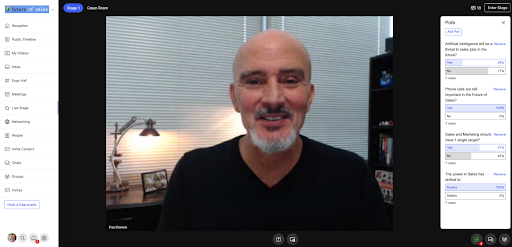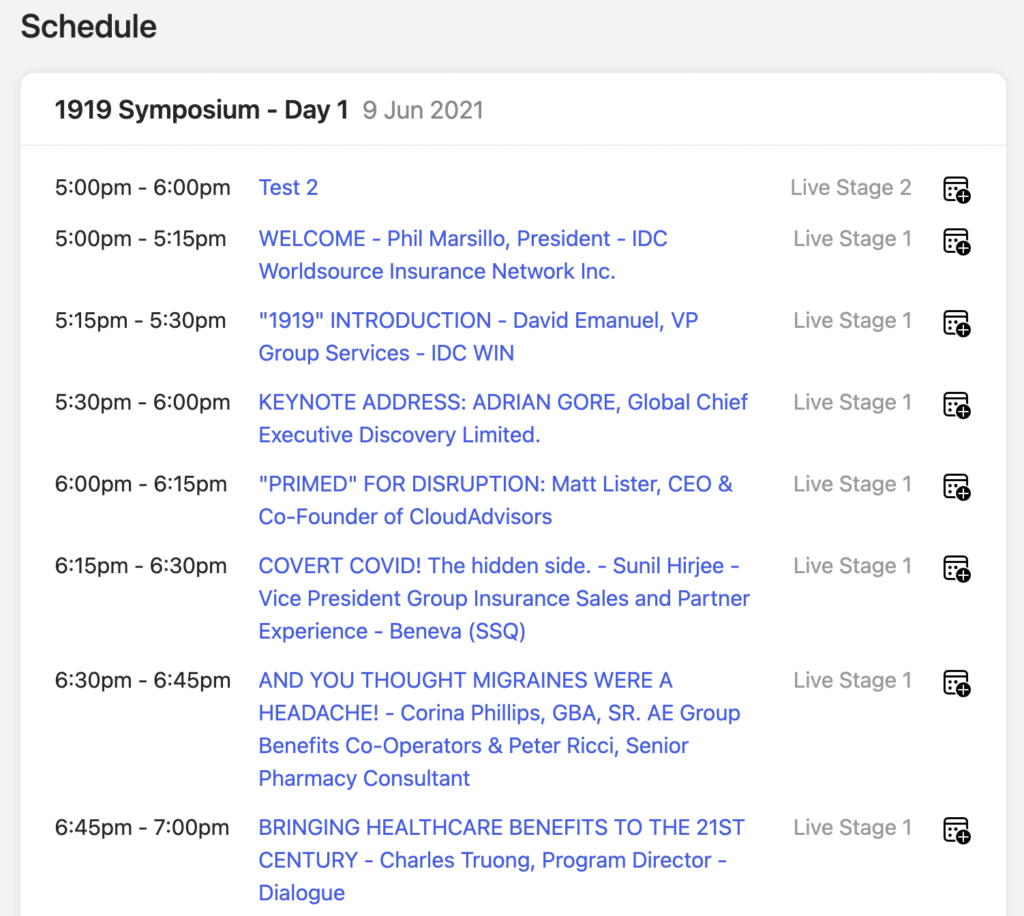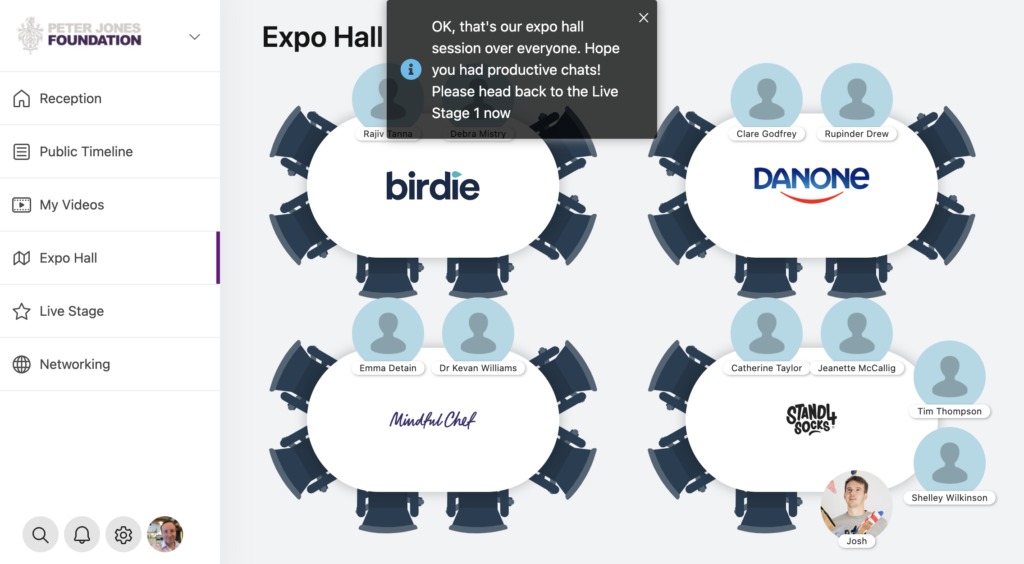Virtual Event Platforms vs Video Conferencing
Event Anywhere Team
Virtual event platforms like Event Anywhere offer distinct advantages over traditional video conferencing tools like Google Meet, Microsoft Teams, or Zoom when it comes to creating a series of meetings and events. Here are some reasons why virtual event platforms are more suitable for hosting a series of events:
1. Specialized Event Features: Virtual event platforms are specifically designed to host large-scale events, conferences, and exhibitions. They offer a wide range of event-specific features such as customizable registration pages, multi-track sessions, virtual expo halls, networking lounges, and more. These features provide a more engaging and immersive experience for attendees compared to standard video conferencing tools.

2. Centralized Event Management: Virtual event platforms provide a centralized dashboard for event organizers to manage all aspects of the event. From scheduling sessions to tracking registrations and managing exhibitors, everything can be easily coordinated from one place, making event management more efficient.

3. Enhanced Attendee Engagement: Virtual event platforms are designed to encourage attendee participation and interaction. They offer various engagement tools like live polls, Q&A sessions, chat functionalities, and gamification elements that keep attendees actively involved throughout the series of events.
4. Networking Opportunities: Virtual event platforms often include networking features that facilitate one-on-one or group interactions between attendees, speakers, and exhibitors. These networking opportunities mimic the spontaneity of in-person events, promoting valuable connections and fostering meaningful relationships.
5. Better Content Organization: In virtual event platforms, you can organize sessions into tracks or categories, making it easier for attendees to navigate and choose the content most relevant to their interests. This enhances the overall experience and ensures that participants can access the sessions they find most valuable.
6. Analytics and Insights: Virtual event platforms typically provide comprehensive analytics and reporting, giving event organizers valuable insights into attendee behavior, engagement levels, and session popularity. This data can be used to improve future events and tailor content based on attendee preferences.
7. Branding and Customization: Virtual event platforms allow for extensive branding and customization options. Event organizers can tailor the platform’s appearance to align with their branding, creating a cohesive and professional event experience for attendees.

8. Reduced Risk of Meeting Fatigue: Virtual event platforms offer a variety of formats and activities, preventing attendees from experiencing “Zoom fatigue” or getting overwhelmed with back-to-back video conferences. Diverse sessions and interactive elements keep the event fresh and engaging.
Here is a table that summarizes the key differences between video conferencing tools and virtual event platforms:
Feature | Video conferencing tools | Virtual event platforms |
|---|---|---|
Purpose | Small meetings and discussions | Large-scale events and conferences |
Features | Real-time communication, screen sharing, file sharing | Specialized event features such as live streaming, Q&A, and breakout rooms |
Engagement | Limited | Enhanced engagement through features such as polls, surveys, and gamification |
Networking | Limited | Networking opportunities through features such as virtual meeting rooms and chat |
Event management | Simplified | Centralized event management for a more seamless experience |
While video conferencing tools like Google Meet, Teams, or Zoom are excellent for smaller meetings and discussions, virtual event platforms like EventAnywhere.com provide a comprehensive solution for creating a series of meetings and events on a larger scale. With specialized event features, enhanced engagement, networking opportunities, and centralized event management, virtual event platforms offer a more immersive and engaging experience, making them the preferred choice for hosting extensive virtual events and conferences.